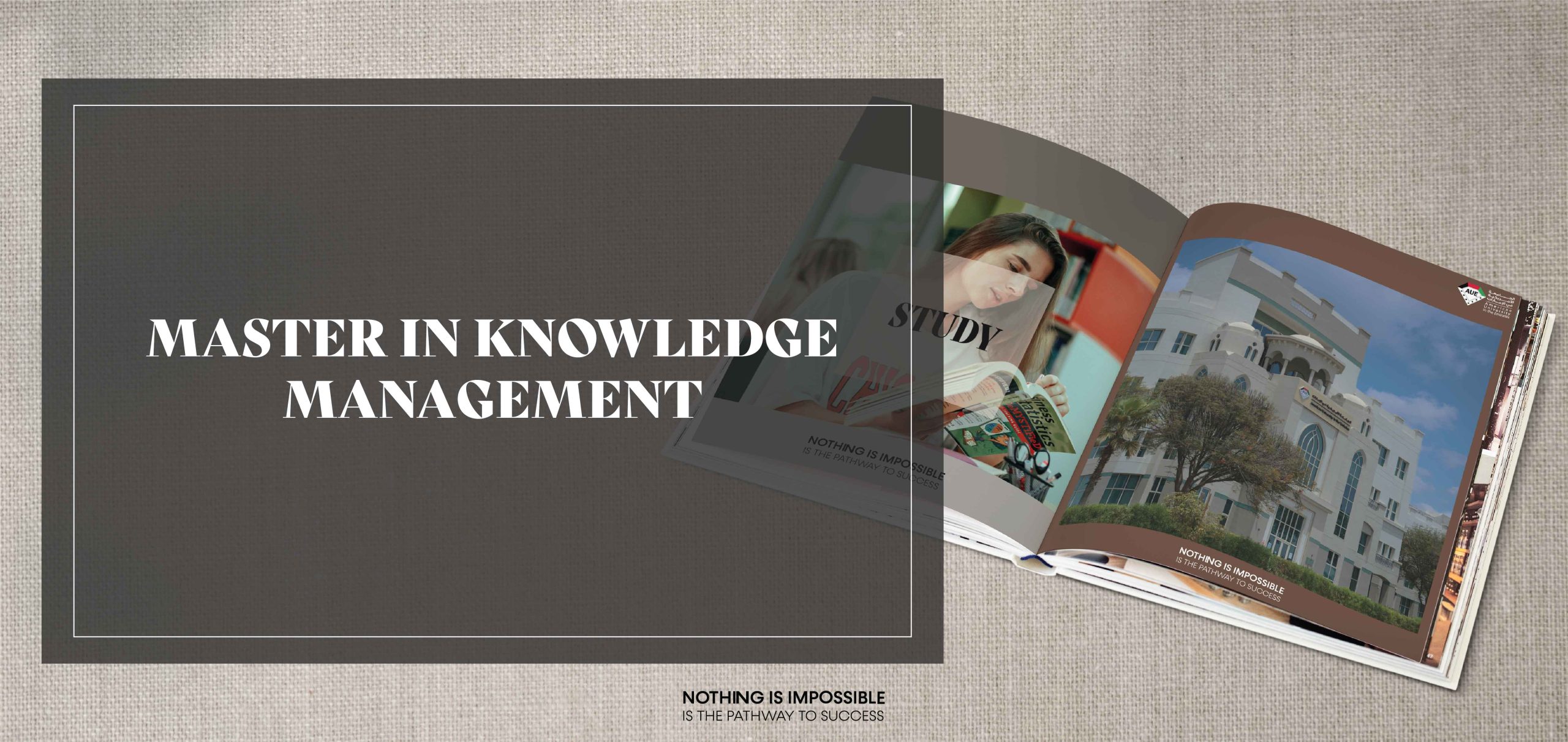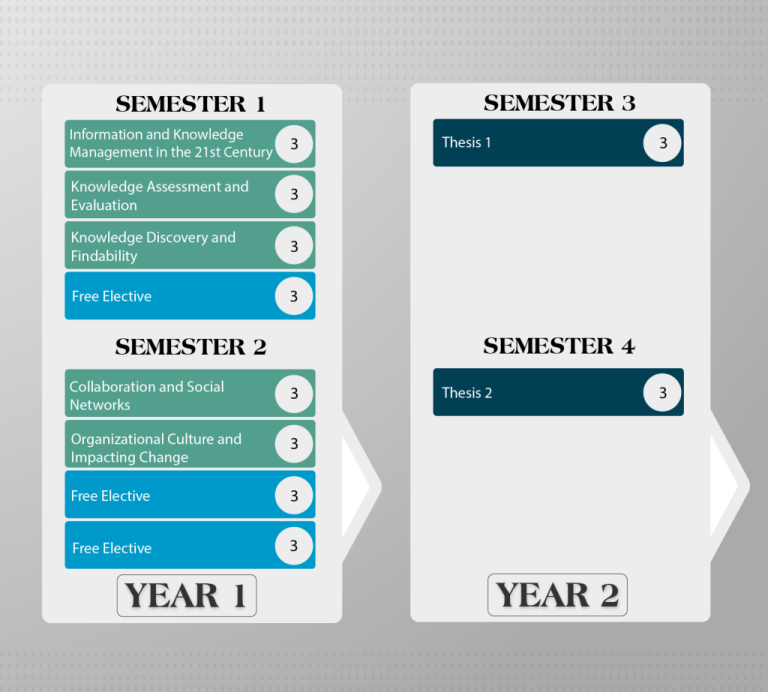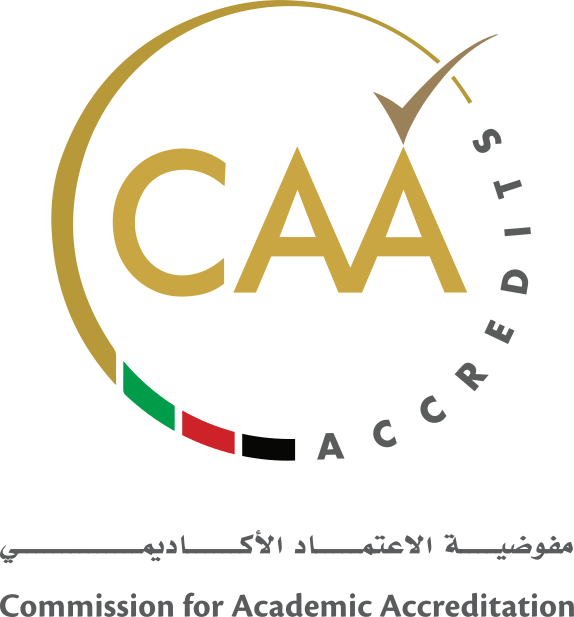
- Overview
- Program Structure
- Accreditations
- Faculty
- Admission
-
Duration
2 Years
-
Classes
Weekday | Weekend
-
Fees
Tuition (One Semester) ……… Approx. 41,000 AED
One academic year is two semesters
Admission (One Time) ……… 3,500 AED
About Program
In the information age, the ability to harness and leverage knowledge is a powerful asset. Our Master in Knowledge Management program equips you with the skills to effectively manage and leverage knowledge assets within organizations. Dive into the realms of knowledge creation, organization, transfer and utilization. Learn to develop knowledge management strategies that drive innovation, improve decision-making and enhance organizational performance. As a qualified knowledge management professional, you will be in high demand in various sectors, including business, government, healthcare and technology. Enroll now and become a leader of transforming information into a strategic advantage.
Program Goals
- Fill the domestic and regional market necessity of competent specialists in the field.
- Support contemporary and contextual research topics in the field.
- Establish a specialized Knowledge Management clinic that advances the region’s knowledge and best practice.
- Enable graduates to perform effectively in the Knowledge and information professions.
Program Learning Outcomes
- Critically demonstrate coherent and specialized knowledge in the field of work or discipline.
- Interpret knowledge through oral and written communication using appropriate research methodology.
- Use cognitive knowledge and skills to transfer learning to new situations in the field of work or discipline.
- Analyze issues by developing convenient solutions through appropriate synthesis and communication.
- Manage knowledge Management activities with analytical competences.
- Contribute to professional knowledge and field of practice through cultural and ethical framework.
Program Structure
Course Category
Core Courses
Elective Courses
Thesis 1
Thesis 2
Total (Excluding Bridging Courses)
Total Number of Courses
5
3
1
1
Total Number of Credit Hours
15
9
3
3
30 Credit Hours
- Core Courses
- Free Elective Courses
- Thesis
It was not till the late 1990’s that Chief Executive Officers began discussing Knowledge Management. Since Knowledge Management as a practice is relatively young, many executives have struggled with successful models that could be used as guides. In this course, you will gain an understanding of several key issues that knowledge workers deal with. We will also review current trends in Knowledge Management including but not limited to:
Organizational focus and investments in knowledge management.
A company’s knowledge strategy and how it reflects the competitive strategy.
The role and impact of automation on knowledge workers.
This course uses readings, case studies, personal projects and discussion to expose students to the field of Knowledge Management. The course introduces you to the historical roots, theories, beliefs and frameworks in the field of Knowledge Management. You will also learn to determine the infrastructure requirements to manage intellectual capital. Additionally, you will learn about the role and skill set of today’s knowledge professionals.
It would be very challenging to understand where an organization needs improvement without establishing a baseline. You learn the purpose of a knowledge assessment and evaluation through knowledge audit, mapping, and other various techniques. This includes the steps involved with identifying, evaluation and rating critical knowledge assets, process, and the various audit methods available, and how to audit and analyze a company’s existing knowledge. You will understand and practically apply the formulation and planning, human, structural and relational capital mapping.
You will build upon the foundation of Knowledge Management to apply knowledge principles and peer perspectives to current state as we begin developing knowledge strategy. You will then conduct a complete knowledge audit aimed at assessing the knowledge needs of your department /organization / institution. You will further understand the infrastructure requirements to manage the human, structural and relational capital at an organization/institution. Your assessment should follow a holistic approach and apply the principles of Knowledge Management as they relate to enterprise wide information and knowledge services.
Information and data are growing at an exponential rate. Analytics allows us to explore science and human behavior. Businesses and governments require effective strategic intelligence to track competition and manage and disseminate knowledge. For example, Capital One Bank uses analytic capabilities to match credit card offerings to customers more accurately than their competitors. Walmart uses analytics to monitor and update its inventory in a way that allows it to serve its customers at an exceptionally low cost. Companies like Apple, Google, Amazon, Walmart, Netflix and many other leading-edge companies are highly successful because they make very good use of the data they collect. In this course, will you explore how to turn data into information and then into knowledge, which in turn translate into actionable insights. You will learn to identify and evaluate business analytic opportunities that can create strategic value for your organization. Additionally, you will learn basic analytic methods and analyze case studies on organizations and institutions that have successfully developed these techniques. Finally, you will review challenges that arise in implementing analytical capabilities and gain practical skills to help drive knowledge initiatives that enable organizations to be more data driven and impacting effectiveness.
Structuring online content is essential so that people can easily find what they are looking for. This course introduces you to concepts and practices in Information Architecture as well as basic elements of user experience design (UXD). Students will learn the broader context of Enterprise Architecture and develop practical skills to compare, analyze and design information architectures. The focus of Information Architecture is the structure and organization of content in an intranet, knowledge hub, website, mobile app, or other knowledge system with the goal of improved findability. Information Architecture is essential as it provides consistent
taxonomies, metadata, search functionality and structured vocabulary with the user in mind. The course will have a group and individual component. For the group component, students will analyze a website from an Information Architecture perspective in a small group as well as conduct user research. For the individual component, you will select a target intranet or website for design, create the Information Architecture design and develop a presentation showing the process and workflows.
Recommended Study Plan

Accreditations
The American University in the Emirates is licensed by the UAE Ministry of Education – Commission for Academic Accreditation | caa.ae

Prof.Laiali Almazaydeh
Professor / Dean

Prof. Firas Alkhaldi
Professor / Program Director - Master Of Knowledge Management

Dr. Abedallah Abualkishik
Associate Professor / Department Chair - Computer Science

Dr. Ibrahim Abualsondos
Assistant Professor/Department Chair of ITM
Graduation Requirements
For graduate degree completion, graduate students must satisfy the following requirements:
- Earn a minimum CGPA of 2.00 on a scale of 4.00.
- Successfully complete all courses as described in the study plan.
- The Degree Completion requirements must be met within the timeframe of the program.
- Successfully complete the “Thesis” course.
Joining the Program
- Fall Semester
-
September
-
Spring Semester
- January
- Summer Semester
- May






